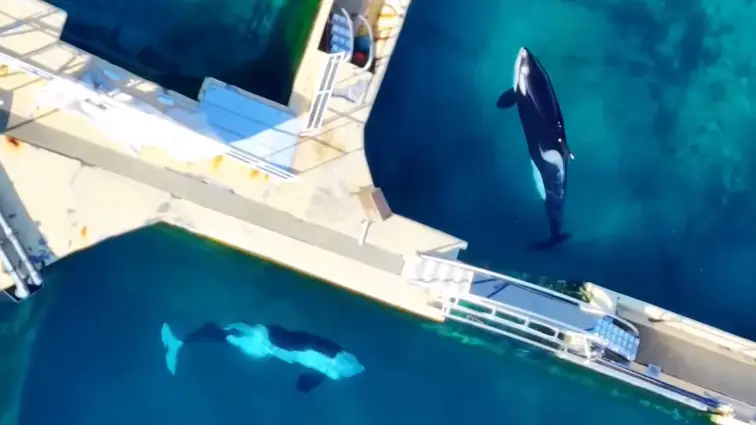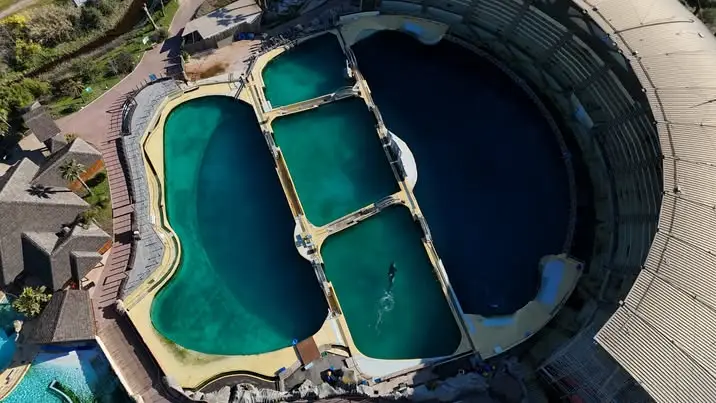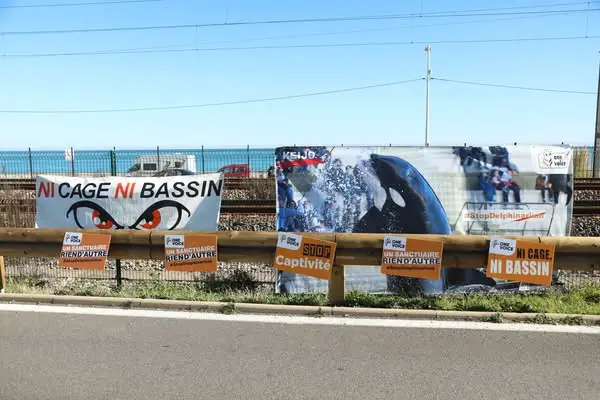
A pair of killer whales face a fight for survival after being abandoned at a French Riviera tourist attraction.
In January of this year, Marineland of Antibes closed its doors due to declining attendance and increased animal captivity regulations in the country after 55 years, yet 23-year-old mother Wikie and 11-year-old son Keijo remain in their slime-covered, festering enclosure, visited only by the management company's obligatory skeleton staff for feeding purposes, and not much else (via The Mirror).
Tragically, this flies in the face of everything we know about orcas, which are the ocean's apex predator; highly social, and requiring regular mental stimulation.
Co-founder of activist group Tidebreakers, Marketa Schusterova, claims that the mammals are 'going to get sick and die' if they are not transported elsewhere soon.
Advert

"We know from reviewing footage [of Marineland] that the tank is causing a hazard," added Marketa. "We know that it's not being cleaned, it's falling apart. It's a hazard for these orcas every day.
"We are very worried that the situation is so critical, and the water quality is deteriorating to the point that it's going to cause health issues to these whales, and they're going to be euthanised before they get a chance to actually see a sanctuary, which is tragic because the male, Keijo, is only 11 years old, the mother is 23. Orcas in the wild can live to human age, outside of captivity they can live to 70 or 80 years old."
Marineland itself 'reaffirms the extreme urgency of transferring' Wikie and Keijo to an 'operational destination', but every planned move so far has fallen apart.
Just last month, Tenerife's Loro Parque Zoo was blocked from housing the mother and child by the Spanish government. A seemingly perfect site in Nova Scotia could be on the cards, which boasts a 1,000-acre bay cordoned off with 1,600m of escape-proof netting.

"We have been strong advocates for the past year that these two orcas should be relocated to a seaside sanctuary, which would be larger, in natural sea water, and save them from repetitive performances in concrete tanks,” said David Phillips, Director of the International Marine Mammal Project at Earth Island Institute.
“While the French Ministry has stated a preference for a sanctuary in the EU, we believe that the whale sanctuary being developed in Nova Scotia is a very viable alternative that was previously chosen as the best option by the French Ministry’s Inspector General’s Report.
“Orcas don’t belong in concrete tanks; they belong in the ocean," he went on to stress.
Meanwhile, the Antibes park also harbours 12 stranded bottlenose dolphins, whose futures are still to be determined.
Topics: Animals, World News, Ocean
